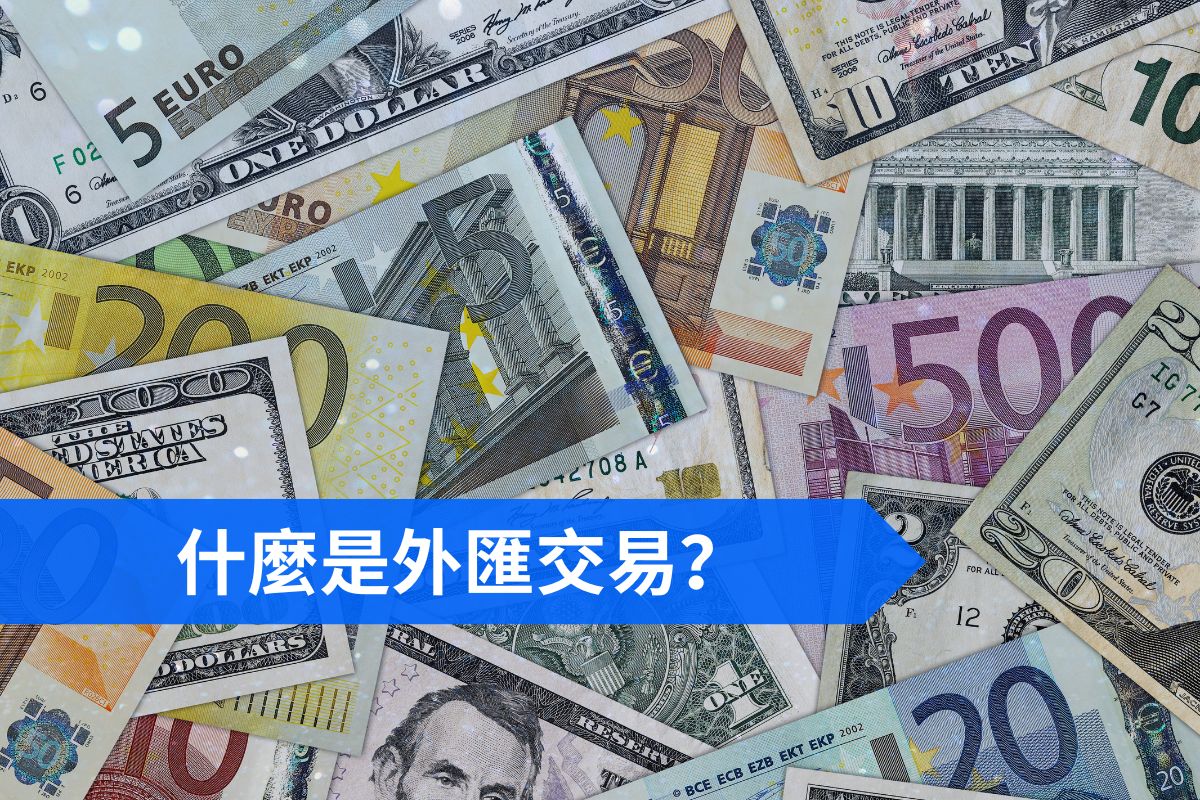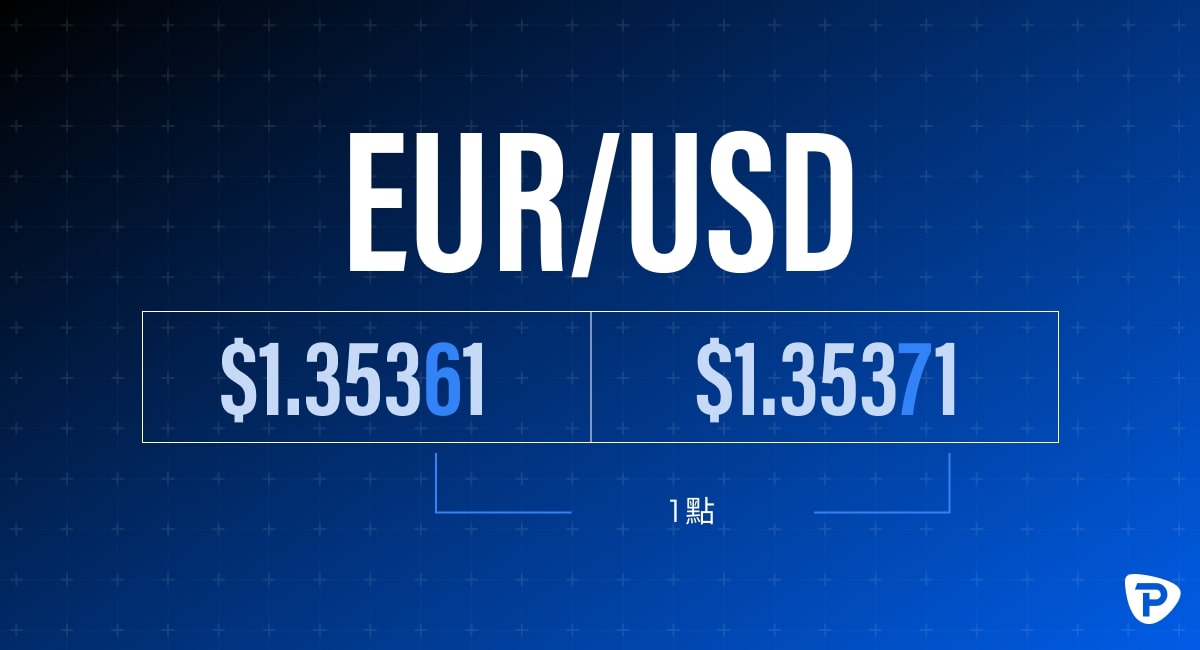什麼是外匯交易?它如何運作?
外匯交易是指在全球市場中進行貨幣交換,通過匯率波動尋求盈利的活動。交易者根據市場分析買入或賣出貨幣對,並使用交易平台執行交易操作。外匯市場運行24/5,為交易者提供靈活性和多樣化的機會。

外匯交易是什麼
外匯交易(Forex Trading 或外匯買賣)是指全球範圍內貨幣的買賣市場。在外匯市場中,超過70種貨幣對被交易,例如EUR/USD(歐元/美元)、GBP/USD(英鎊/美元)或JPY/USD(日元/美元)。交易者透過貨幣匯率的波動來尋求盈利機會。外匯市場全年無休運行5天24小時,交易活動受經濟因素、新聞事件和市場趨勢的影響。
外匯交易不僅僅是學習「如何」交易,更關鍵的一點常被忽視,那就是「何時」交易。交易者必須識別合適的入場與出場時間,正確的時機決策能夠對整體交易體驗產生積極影響。因此,了解外匯交易的市場時間至關重要。
雖然外匯市場全天候運作,但其中有許多時段的交易活動較低甚至停滯。市場中有四個主要交易時段,且部分時段存在重疊。這些重疊的交易時段通常是市場最活躍的時段,特別是倫敦與紐約市場重疊的時間,被認為是交易活動最繁忙的時段和時區。
外匯交易時段(UTC時間):
- 雪梨市場:21:00-06:00(UTC +10小時)
- 東京市場:00:00-09:00(UTC +9小時)
- 倫敦市場:07:00-16:00(UTC +1小時)
- 紐約市場:12:00-21:00(UTC -4小時)
了解市場開放時間並選擇合適的交易時段,對於抓住市場機會和優化交易策略至關重要。
盈利與虧損取決於市場的波動性與流動性,因此交易者可以通過深入了解市場交易時段來提升利潤空間。不同的市場時段提供了靈活性,讓交易者能根據自己的交易目標和偏好選擇最佳交易時間。
雪梨市場時段 提供了關於每週交易方向的初步線索,幫助交易者更好地制定計劃。雪梨市場與東京市場有幾小時的重疊時段,這段時間內交易活動達到高峰,市場波動性顯著提升。
東京市場時段 與雪梨市場的尾聲及倫敦市場的開端有所重疊。在這段時期,市場波動性和流動性相對較高,為交易者創造了更多機會。
倫敦市場時段 的交易量極為可觀,市場活動非常活躍,因為它同時與兩個重要的外匯市場時段重疊。倫敦市場既與東京市場的尾聲重疊,也與紐約市場的開端交疊,這使得倫敦市場成為交易的關鍵時段之一。
紐約市場時段 是所有外匯市場中最活躍、最重要的時段。其活動對全球的定價、波動性和流動性產生重大影響。
大多數交易者選擇在市場重疊的時段進行交易,以利用不同交易時段帶來的多樣化市場條件。這些重疊時段的高波動性和流動性為交易者提供了更多潛在盈利的機會
外匯交易怎麼玩?
外匯交易的核心是同時買入一種貨幣並賣出另一種貨幣。以下是簡單的運作方式:
貨幣對:交易以貨幣對形式進行,例如EUR/USD(歐元/美元),表示買入歐元的同時賣出美元。
匯率:匯率決定了兩種貨幣交換的價格,也是計算盈虧的關鍵因素。
市場訂單:交易者可以通過市價單或限價單,以當前市場價格或指定價格買入或賣出貨幣。
交易執行:訂單通過交易平台執行,交易者監控持倉以管理風險和獲利。
槓桿:利用槓桿,交易者可以以較少的資金控制更大的倉位,但同時放大潛在收益與風險。
技術與基本分析:交易者運用技術分析(如圖表、指標)和基本面分析(如經濟數據、新聞事件)來制定更明智的交易決策。
外匯交易是高靈活性且動態的市場,適合喜歡利用匯率波動的投資者,但同時需要謹慎管理風險。

什麼是外匯貨幣對?
外匯貨幣對是外匯市場中兩種貨幣的報價,表示它們之間的相對公平價值。第一種貨幣稱為基礎貨幣(Base Currency),第二種貨幣稱為報價貨幣(Quote Currency)。貨幣對的價格表示用一單位基礎貨幣可交換多少報價貨幣。

什麼是基礎貨幣與報價貨幣?
在外匯貨幣對中,基礎貨幣是列在前面的貨幣,表示交易中被買入或賣出的貨幣。而報價貨幣是列在後面的貨幣,表示購買一單位基礎貨幣所需的報價貨幣數量。
例如,在EUR/USD貨幣對中,EUR是基礎貨幣,USD是報價貨幣。如果EUR/USD的報價為1.1100,表示1歐元可兌換1.11美元。同樣地,在USD/JPY貨幣對中,USD是基礎貨幣,JPY是報價貨幣。如果報價為144.00,表示1美元可兌換144日元。
基礎貨幣與報價貨幣的概念是外匯交易的核心,幫助交易者理解不同貨幣對的交換價值。
什麼是外匯中的點 ( Pip )?
點 ( Pip,全稱「百分點」(Percentage In Point),是外匯交易中價格變動的最小單位。通常,它代表貨幣對報價中的第四個小數位(0.0001)。例如,在EUR/USD貨幣對中,從1.1050變動到1.1051,即為1個PIP。PIP用於衡量利潤和損失,並統一貨幣價值的變動標準。
舉例來說:
- 如果EUR/USD從1.1075上漲至1.1085,這是10個點 ( Pip ) 的增長。
- 如果EUR/USD從1.1085下降至1.1075,這是10個10個點 ( Pip ) 的減少。
日元貨幣對的特殊規則:
- 由於日元(JPY)的報價通常只到小數點後兩位,計算PIP的方法略有不同:
- 如果USD/JPY從144.20上漲至144.40,這是20個點 ( Pip ) 的增長。
- 如果USD/JPY從144.05下降至143.95,這是10個點 ( Pip ) 的減少。
- 點 ( Pip ) 是外匯交易中衡量價格變動的標準單位,幫助交易者更清晰地計算市場波動及其影響。

什麼是外匯交易中的手數(Lot)?
在外匯交易中,手數(Lot)是衡量交易貨幣數量的標準化單位。主要有四種類型的手數:
- 標準手(Standard Lot): 代表基礎貨幣的100,000單位。例如,在EUR/USD匯率為1.1076時,交易一標準手的價值為$110,760(100,000 × 1.1076)。
- 迷你手(Mini Lot): 代表基礎貨幣的10,000單位。以相同例子來看,一迷你手的價值為$11,076(10,000 × 1.1076)。
- 微型手(Micro Lot): 代表基礎貨幣的1,000單位。在EUR/USD例子中,一微型手的價值為$1,107.60(1,000 × 1.1076)。
- 納米手(Nano Lot): 代表基礎貨幣的100單位。使用相同例子,一納米手的價值為$110.76(100 × 1.1076)。這種手數通常適合初學者或資金量較小的交易者使用。
不同的手數大小為交易者提供靈活性,讓他們能根據風險承受能力和資金管理需求選擇合適的交易規模。

手數大小如何影響PIP價值
手數大小會直接影響每個點 ( Pip ) 的價值。以下以100,000單位的標準手為例,說明不同貨幣對中的點 ( Pip ) 價值計算方式:
- 以美元為基礎貨幣的貨幣對
- USD/JPY 匯率為144.90時:(0.01 / 144.90)× 100,000 = 每點 ( Pip ) 價值$6.90
- USD/CHF 匯率為1.1791時:(0.0001 / 1.1791)× 100,000 = 每點 ( Pip ) 價值$8.48
- 以美元為報價貨幣的貨幣對當美元不是基礎貨幣時,公式稍有不同,需要考慮匯率:
- EUR/USD 匯率為1.1080時:(0.0001 / 1.1080)× 100,000 = 9.03再乘以匯率1.1080,結果為$9.9999,四捨五入為每點 ( Pip ) 價值$10。
- GBP/USD 匯率為1.3170時:(0.0001 / 1.3170)× 100,000 = 7.59再乘以匯率1.3170,結果為$9.9999,四捨五入為每點 ( Pip ) 價值$10。
注意事項:外匯經紀商可能採用不同的計算點 ( Pip ) 價值的方式,但通常會清楚告知目前交易貨幣對的點 ( Pip ) 價值。隨著市場變動,貨幣對的匯率也會影響點 ( Pip ) 價值,因此交易者應時刻關注市場條件和經紀商提供的詳細資訊。
外匯交易的優勢
外匯交易因其靈活性和多樣性而備受投資者青睞,以下是其主要優勢:
- 24小時市場運作外匯市場在工作日全天候運作,交易者可以在任何時間進行交易,無需受限於固定的交易時段。
- 高流動性主要貨幣對具有極高的流動性,日均交易量超過7萬億美元,是全球最具流動性的金融市場。這使交易者能夠快速進出市場,執行交易時的價格滑點極小。
- 槓桿交易外匯交易提供槓桿,允許投資者以較少的資金控制更大的倉位,從而有機會放大收益,但也需注意風險同樣會被放大。
- 多樣化機會外匯市場覆蓋全球,提供多種類型的貨幣對,為交易者創造了豐富的交易機會,無論是短期波動還是長期趨勢交易均可參與。
最常見的小型貨幣對
以下是外匯市場中交易量較小但仍然受歡迎的小型貨幣對:
小型貨幣對:由主要貨幣組成,但未包含美元,例如EUR/GBP和GBP/JPY。
- EUR/GBP:歐元/英鎊
- EUR/AUD:歐元/澳元
- GBP/JPY:英鎊/日元
- EUR/JPY:歐元/日元
- NZD/JPY:紐元/日元
- GBP/CAD:英鎊/加元
- CHF/JPY:瑞士法郎/日元
- AUD/JPY:澳元/日元
這些小型貨幣對為交易者提供更多的市場選擇,特別適合有針對性策略的投資者。交易這些貨幣對時,需關注市場波動性及其影響因素,如地區經濟數據及地緣政治事件。
最常見的稀有貨幣對
以下是外匯市場中交易量較低但仍吸引投資者關注的稀有貨幣對:
- USD/TRY:美元/土耳其里拉
- USD/ZAR:美元/南非蘭特
- EUR/TRY:歐元/土耳其里拉
- USD/SGD:美元/新加坡元
- USD/HKD:美元/港元
- USD/MXN:美元/墨西哥比索
- USD/SEK:美元/瑞典克朗
- USD/THB:美元/泰銖
- EUR/ZAR:歐元/南非蘭特
- GBP/SEK:英鎊/瑞典克朗
稀有貨幣對:由一個主要貨幣和一個來自新興經濟或規模較小的貨幣組成,例如USD/TRY和EUR/ZAR。
額外優勢:
- 低交易成本:外匯交易通常涉及較低或無佣金費用,成本內嵌於買賣差價中。
- 高可及性:許多線上平台(如TradingView)提供簡單易用的界面,適合各級別的交易者輕鬆進入市場。
交易稀有貨幣對時需注意市場波動性,因這些貨幣對可能受地緣政治或當地經濟數據的影響更為顯著。

外匯交易的風險
外匯交易雖然提供機會,但也伴隨多種風險:
- 槓桿風險高槓桿雖能放大潛在收益,但也會放大損失,甚至可能超過初始投資金額。
- 市場波動風險突然的價格波動,特別是在波動性高的市場中,可能導致重大虧損。
- 交易對手風險經紀商違約或在市場劇烈波動時出現技術問題,可能影響交易執行或資金安全。
- 經濟風險全球經濟事件會影響貨幣價值,導致匯率出現難以預測的波動。
- 利率風險中央銀行利率的變化會影響貨幣價格及市場穩定性。
- 政治風險地緣政治事件或政治不穩定可能引發市場劇烈波動,對貨幣價格產生重大影響。
- 過度交易風險過度交易或情緒化決策可能導致資金損失加劇,影響整體表現。
要有效應對外匯交易的風險,制定完善的風險管理計劃和深入研究的交易策略至關重要。保持冷靜和紀律性,能幫助交易者減少不必要的損失。

影響外匯市場的因素
外匯市場受到多種關鍵因素的影響,以下是主要驅動市場波動的原因:
- 經濟指標經濟數據如GDP、就業數據、通脹率和製造業產出等,會影響貨幣價值。通常,經濟表現強勁會提振貨幣價值,而疲弱表現則可能導致其貶值。
- 中央銀行政策與利率中央銀行的行動和聲明(如量化寬鬆或緊縮貨幣政策)對貨幣價值有直接影響。較高的利率通常吸引外國投資,推動貨幣升值,而較低的利率可能削弱貨幣價值。
- 地緣政治事件政治穩定性、選舉結果以及地緣政治緊張局勢,往往引發市場波動。例如,英國脫歐對外匯市場產生了深遠影響。英國退出歐盟的決定使英鎊(GBP)大幅波動,其價值受談判結果、政治進展和經濟預測影響。
- 市場情緒市場參與者的心理因素、傳聞和新聞報導也會影響貨幣走勢。交易者的預期和信心水平通常決定了市場方向。
- 貿易與資本流動貿易平衡變化和外國投資水平會影響貨幣的供需。貿易順差會增加對一國貨幣的需求,推動其升值;而貿易逆差則會削弱貨幣。同樣,資本流入(如外國直接投資)會提升貨幣價值,而資本外流可能導致貶值。
- 全球事件自然災害、疫情以及國際重大事件通常會在外匯市場引發波動。例如,新冠疫情期間,由於經濟不確定性、封鎖措施和全球貿易的變化,外匯市場波動加劇。像美元(USD)和日元(JPY)這樣的避險貨幣最初大幅升值,而其他貨幣則走弱。中央銀行的刺激措施和降息進一步影響了貨幣走勢,為交易者帶來風險與機遇。
理解這些驅動因素有助於交易者更準確地預測市場波動,制定更有效的交易策略

關鍵外匯術語
以下是您在外匯交易中需要了解的重要術語:
- 持倉(Position):在市場中開立的交易。
- 槓桿(Leverage):使用借貸資金控制更大交易規模的能力。
- 保證金(Margin):開立和維持槓桿倉位所需的資金。
- 點(Pip):貨幣對價格的最小波動單位。
- 匯率(Exchange Rate):兩種貨幣之間的交換價格。
- 基礎貨幣(Base Currency):貨幣對中的第一種貨幣,表示被買入或賣出的貨幣。
- 報價貨幣(Quote Currency):貨幣對中的第二種貨幣,用於衡量基礎貨幣的價值。
- 買入價(Bid):您可以賣出貨幣的價格。
- 賣出價(Ask):您可以買入貨幣的價格。
- 點差(Spread):買入價與賣出價之間的差額。
- 主要貨幣對(Major Pairs):最常交易的貨幣對,包括美元(USD)。
- 稀有貨幣對(Exotic Pairs):由一種主要貨幣和一種新興經濟體的貨幣組成的貨幣對。
- 限價止損單(Stop-Limit Order):當價格達到指定水平時執行的買入或賣出訂單,但僅限於設定的價格範圍內。
- 止損單(Stop-Loss Order):在達到指定價格時自動平倉的訂單,用於限制損失。
熟悉這些術語有助於您更好地理解外匯市場的運作,並制定更加精確的交易策略。
如何開始外匯交易?
以下是開始外匯交易的步驟:
- 學習基礎知識了解外匯交易的基本概念,包括術語、市場動態以及交易策略,為後續交易打下基礎。
- 選擇可靠的經紀商選擇聲譽良好、點差低且提供優質客戶支持的外匯經紀商,確保交易環境穩定安全。
- 開設交易帳戶在選定的經紀商平台上註冊交易帳戶,選擇適合自己需求的帳戶類型(如標準帳戶或迷你帳戶)。
- 存入資金向交易帳戶注入資金,確保金額在可承受的風險範圍內。
- 下載交易平台安裝經紀商提供的交易平台(如MetaTrader 4或5),用於執行交易和分析市場。
- 制定交易計劃根據技術分析和基本面分析,制定包含風險管理規則的交易策略。
- 開始交易先從模擬交易開始,練習交易技術而不冒實際資金風險。一旦有信心後,可以轉向實盤交易。
- 監控與調整持續檢視交易表現,關注市場新聞,並根據需要調整策略以適應市場變化。
遵循這些步驟,能幫助您更有效地進入外匯市場,同時降低風險並提高成功機率。
外匯經紀商的作用
像Pepperstone這樣的外匯經紀商在交易者與外匯市場之間扮演中介角色,其主要功能包括:
- 市場進入提供交易平台,讓交易者能買賣貨幣對,參與外匯市場交易。
- 訂單執行負責執行交易者的買入和賣出訂單,確保交易順利完成。
- 槓桿提供為交易者提供槓桿,讓他們以較少的資本控制更大的倉位。
- 點差與佣金通過點差(買入價與賣出價的差額)或佣金賺取收益。
- 市場數據提供即時市場報價、圖表及新聞,幫助交易者掌握市場動態。
- 帳戶管理處理交易帳戶的存款、提款及帳戶設置,確保資金流通順暢。
- 客戶支持提供交易相關問題解答、帳戶管理及技術支持,幫助解決各種需求。
- 教育與工具提供教育資源、交易工具和分析服務,幫助交易者做出更明智的決策。
外匯經紀商的核心目標是為交易者提供便捷、高效且可靠的交易環境,助力他們在外匯市場取得成功。
外匯交易常見問題
外匯交易是24小時運作的嗎?是的,外匯交易市場每週運作五天,每天24小時不間斷。市場從週一早晨雪梨開市開始,到週五晚上紐約收市結束,實現全球金融中心之間的連續交易。這種全天候的交易特性滿足了不同時區和交易者的時間需求,提供了靈活的交易機會。

外匯交易的不同策略
以下是一些常見的外匯交易策略,適合根據交易風格和目標選擇:
- 日內交易(Day Trading)在同一天內買入和賣出貨幣,以短期價格波動為目標,適合快速進出市場的交易者。
波段交易(Swing Trading)持倉數天到數週,以預期市場的波動或趨勢為基礎進行交易,適合中期投資者。
- 剝頭皮交易(Scalping Trading)一天內執行多筆小額交易,捕捉微小價格變化以積累小額利潤。但頻繁交易會增加交易成本,小幅市場波動可能快速逆轉,導致潛在虧損超過收益。
- 趨勢交易(Trend Trading)識別市場趨勢並按趨勢方向交易,通常使用移動平均線等指標來確認趨勢。
- 區間交易(Range Trading)在明確的價格區間內交易,在支撐位買入,並在阻力位賣出,適合市場橫盤波動的情況。
- 突破交易(Breakout Trading)當價格突破定義的區間或形態時進場,預期價格會沿著突破方向出現顯著變化。
- 利差交易(Carry Trading)利用兩種貨幣間的利率差,買入高利率貨幣,賣出低利率貨幣,獲取利差收益。
- 持倉交易(Position Trading)基於基本面分析和長期市場趨勢進行交易,通常持倉數週到數月,適合耐心型交易者。
- 新聞交易(News Trading)根據經濟新聞的發布及其對貨幣價格的預期影響進行交易,適合對市場事件敏感的交易者。
- 技術分析(Technical Analysis)使用圖表和技術指標,基於歷史數據和模式來預測未來價格走勢,適合注重數據的交易者。
選擇適合自身風險偏好和交易風格的策略是成功外匯交易的重要一步。同時,定期檢討和調整策略有助於在動態市場中保持競爭力。
外匯交易者如何賺錢?
外匯交易者透過貨幣匯率的波動尋求盈利,以下是主要的盈利方式及風險:
- 低買高賣(做多)
- 方法:當預期貨幣對價格將上漲時,買入該貨幣對,價格上漲後再賣出,賺取買賣價差。
- 風險:如果市場行情逆轉,貨幣對價格下跌,可能導致虧損。
高賣低買(做空)
- 方法:當預期基礎貨幣價格將下跌時,賣出該貨幣對,價格下跌後再買回,賺取價差。
- 風險:如果基礎貨幣價格上漲,交易者可能在回購時面臨重大損失。
槓桿交易
- 方法:利用槓桿,交易者可以以較少的資金控制更大的倉位,從而放大潛在收益。
- 風險:槓桿同時會放大虧損,若市場逆勢波動,可能導致追加保證金通知甚至全部資金損失。
- 利率差異(利差交易)
- 方法:通過買入利率較高的貨幣並賣出利率較低的貨幣,從中賺取利息差異。
- 風險:若利率突然變化或貨幣貶值,可能抵消利息收益,甚至導致損失。
套利交易
- 方法:利用不同市場或經紀商之間的貨幣對價格差異進行套利。
- 風險:價格差異可能迅速消失,交易成本或執行延遲可能侵蝕潛在利潤。
波段交易與趨勢交易
- 方法:根據市場趨勢分析進行短期或長期交易,抓住價格波動的有利變化。
- 風險:市場趨勢可能突然逆轉,若未及時管理持倉,可能導致意外虧損。
外匯交易盈利與風險並存。成功的交易者通常制定明確的風險管理策略,嚴格控制倉位和情緒,以在動態市場中實現穩定回報。
基本外匯交易信號
外匯交易信號是用於識別潛在交易機會的工具或指標。以下是一些常見的基本信號:
- 移動平均線(Moving Averages)
- 根據特定時間段(例如50天或200天)的平均價格計算,用於平滑價格數據,幫助識別趨勢和潛在的反轉點。
相對強弱指數(RSI)
- 測量價格變動的速度和幅度,幫助判斷市場是否處於超買或超賣狀態。
指數平滑異同移動平均線(MACD)
- 又稱「移動平均線收斂/發散指標」,是一種趨勢跟隨動能指標,顯示貨幣對兩條移動平均線之間的關係,用於判斷趨勢強度和反轉機會。
布林通道(Bollinger Bands)
- 包括中間帶(移動平均線)和上下兩條外帶(通常為兩個標準差),用於表示市場波動性和潛在的價格反轉區域。
趨勢線(Trendlines)
- 在圖表上連接重要的高點或低點的線條,用於識別趨勢的方向和強度。
- 支撐和阻力水平(Support and Resistance Levels)
- 圖表上的水平線,標記出貨幣對價格在歷史上難以突破的支撐(下方)或阻力(上方)區域。
- 圖表形態(Chart Patterns)
- 包括頭肩形、雙頂/雙底和三角形等形態,這些形態可以預示市場趨勢或反轉的可能性。 ( 參見下文)

此處提供的資料並未按照旨在促進投資研究獨立性的法律要求準備,因此被視為行銷傳播。雖然在投資研究傳播之前不受任何交易禁令的約束,但我們在向客戶提供研究之前不會尋求利用任何優勢。
Pepperstone 並不代表此處提供的資料是準確的、最新的或完整的,因此不應被依賴。該訊息,無論是否來自第三方,均不應被視為推薦;或購買或出售的要約;或招攬購買或出售任何證券、金融產品或工具的要約;或參與任何特定的交易策略。它沒有考慮讀者的財務狀況或投資目標。我們建議任何閱讀此內容的讀者尋求自己的建議。未經 Pepperstone 批准,不得複製或重新散佈此資訊。